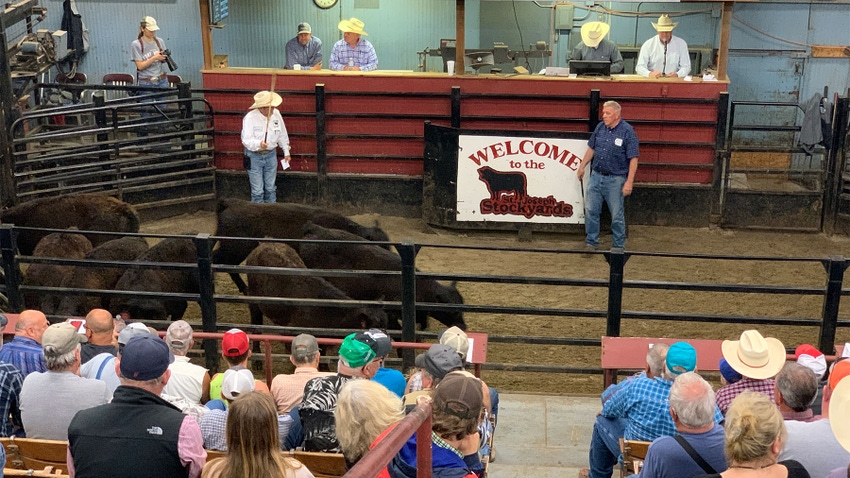August 28, 2023

by Wesley Tucker
Drought and taxes. For the second year, dry conditions and high feed prices forced the sale of cattle across the country.
With this additional revenue comes more taxes. Understanding how to deal with the influx of income comes down to two special tax provisions, which can reduce your tax liabilities. Here’s a refresher:
1. Section 451(g). The first provision, Section 451(g), allows a producer who sells more livestock than normal because of drought, flood or other weather-related conditions to postpone recognizing the gain from those sales until the following year. To qualify for Section 451(g), your area must have been declared eligible for federal assistance.
Whether it’s beneficial to postpone those sales to next year may depend on your other income and expenses.
During drought you may have more expenses to offset income in the current tax year. In addition, estimate what your expected income will be next year. For instance, in 2012 many producers elected 451(g) to postpone income. However, in 2013 calf prices skyrocketed. Many ag economists believe cattle prices will be even higher next year.
In addition, government payments for the drought of 2012 might not have arrived until 2013, which further increased farmers income. Many producers ended up paying more in taxes over both years than they would have if they hadn’t postponed sales.
2. Section 1033(e). The second provision, Section 1033(e), deals with the sale of livestock held for draft, breeding or dairy purposes in excess of normal because of drought, flood or other weather-related conditions.
This provision does not recognize the gain of the sale at all, because the farmer plans to replace those livestock at a later date. As with Section 451(g), only the number of head in excess of normal qualify.
The American Jobs Creation Act of 2004 added two new options in this section for areas designated as eligible for federal assistance:
Replacement period. The farmer has up to four years from the date of the livestock sale to replace them.
Replacement property. Producers can replace livestock with other farm property if it is not feasible to reinvest in similar property. For instance, if the drought still persists, buying back cows does not make sense.
For farmers enduring their second drought in two years, this rule allows them four years to evaluate whether to replace the livestock sold or amend the previous tax return from the year the livestock were sold.
Just like with 451(g), before postponing the sale of those breeding livestock, carefully evaluate your tax situation. Realize, the sale of breeding livestock are often long-term capital gains, which receive preferential tax treatment.
Depending on your current tax bracket, some raised breeding stock sales may be taxed at 0% or only 15%. In addition, raised breeding stock sales and depreciation recapture from purchased cows are not subject to self-employment taxes for Social Security and Medicare, which is 15.3%.
So, choosing to recognize the sale of those breeding cows today may cost a little capital gain, but may save much more in the future when you get to put the entire purchase price of replacements on deprecation, saving federal and state income taxes, as well as self-employment taxes.
It’s well worth your time to visit with your tax professional about what is best for you and your future situation.
Tucker is a University of Missouri Extension ag business specialist and succession planner. He can be reached at [email protected] or 417-326-4916.
Read more about:
TaxesYou May Also Like




